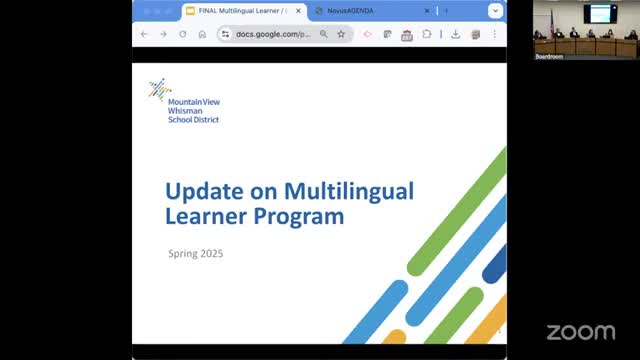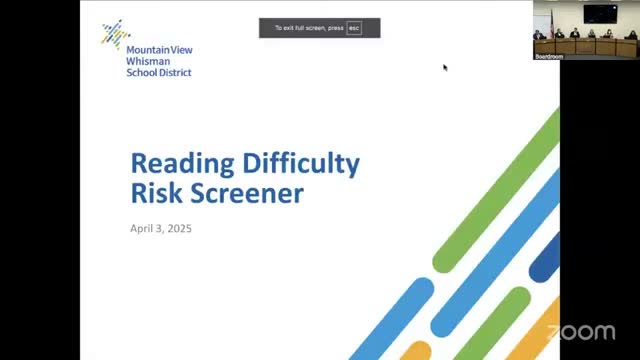Article not found
This article is no longer available. But don't worry—we've gathered other articles that discuss the same topic.

Votes at a glance: Mountain View Whisman board approves superintendent contract, consent agenda (minus two items), preschool staff incentives, rent concessions,

Canopy and district plan May 31 community tree planting at Bubb Elementary; Google to donate first 15 trees

District reports mixed progress for multilingual learners; reclassification goals and targeted supports outlined

Committee recommends Amplify MCAS DIBELS as district reading difficulty screener; board to consider adoption at next meeting

Special education director outlines priorities: reading, staffing, and language‑affirming assessments

